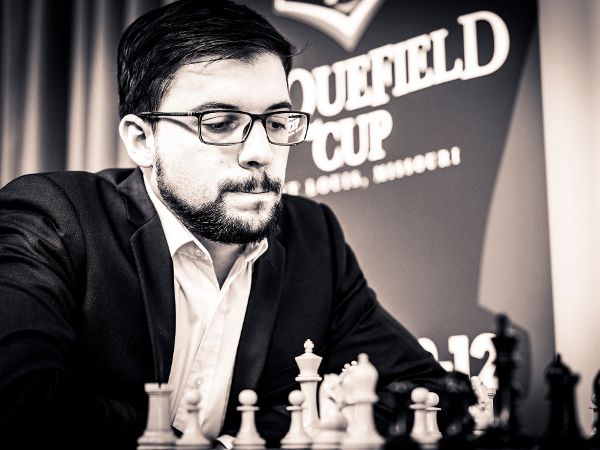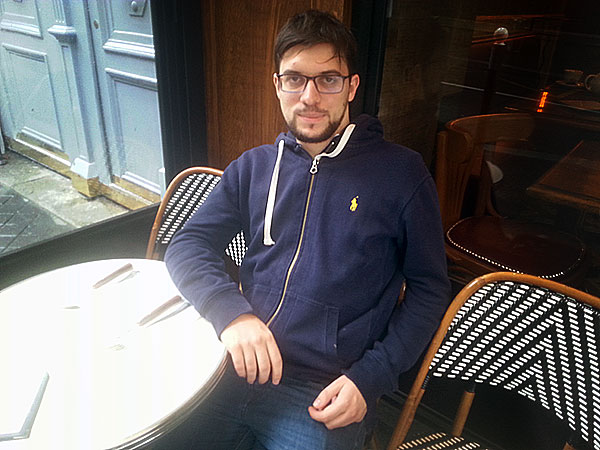"I couldn’t even talk properly after the game against Magnus" - An interview with Maxime Vachier-Lagrave
You missed a promising position against Svidler, and then hung in tough to be rewarded with a win against Carlsen. Apart from these two, almost all your other games gave a feeling of harmony, or logic. Would you say your games in this tournament were generally quite smooth?
In general yes. There was the game against Magnus that was very messy. I was in some trouble against Fabiano as well after the opening. But I managed to equalise. In general, my games were following a normal rhythm and there were some interesting moments in most of them.
In the final analysis, would you consider your game against Carlsen the turning point of the whole tournament?
Well, if we imagine that the game had ended in a hard-fought draw, which probably was the logical outcome, and that, hypothetically speaking, all the other results had remained the same, then Magnus would have won the event. And, if Magnus had won that game, he very likely would have won the event.
The game against Carlsen was one of the highlights of the tournament. How would you describe the intense encounter?
The middle game was a battle of nerves.

Magnus Carlsen at the Sinquefield Cup | Photo: Lennart Ootes
It was very difficult to figure out what was going on because the position was so unusual. White had trumps on the kingside, I had trumps on the queenside and everything was a bit messy because the situation could easily get reversed. At some point, Magnus could get on top on the kingside and I could get on top, under right conditions, on the queenside. Neither of us had absolute domination. There were lot of subtleties to figure out and there was everything was to play for.
Though you won, did the game against Carlsen take a toll on you?
It was particularly exhausting. It lasted a long time and with everything that was happening on the board, it required unusual amount of focus. After the game, I was feeling drained, both mentally and physically. It took me a couple of hours to go back to my normal state. I was not able to talk or think properly for at least couple of hours. I would say that the state I was in after the game against Magnus is normally the state I am in at the end of a tough tournament.
You seem to be following a compact opening repertoire, especially in Saint Louis. But then suddenly, you threw an opening surprise in the last round against Nepomniachtchi. How did you decide on that?
I had played this line with black against Magnus in the Paris rapid and blitz tournaments and I was in some trouble. So I decided to look at it and realised that things are not that simple. Magnus had also played the same line against Ian [Nepomniachtchi] in Leuven in which Ian had got in early trouble. I figured out that perhaps Ian hadn’t looked at this line seriously and even if he had, there were couple of tricks still left. I felt it was a decent try for the last round.
Did the tournament situation make you choose this opening line against Nepomniachtchi?
Partly, yes. I had to win the last round because tiebreaks were not in my favour. I didn’t have a choice but to go for a win. In general, I would play the way I did that day against Ian. However, if I needed only a draw to win the tournament, I might have considered playing something super safe and solid. But normally, if I am playing white against anyone, I want to play for a win.

Focused: Maxime Vachier-Lagrave | Photo: Lennart Ootes
With wins against So and Nepomniachtchi in the first and last rounds, we saw ‘MVL the squeezer’. Most of the other games were complex affairs. Which kind of chess do you really prefer as a player?
I think I can do both. Of course, it’s satisfying to be a squeezer, to give your opponent as little counterplay as possible. It’s a pleasant feeling not to be in any danger, playing for two results (win and draw). As a professional, it’s always preferable and pleasant. But at the same time, every time I get into complex positions, there’s a thrill that cannot be equalled with simple play. It’s also nice to try to outsmart your opponent in a messy position. It’s a good feeling.
Following your win in Saint Louis, you crossed the 2800 Elo mark and have jumped to world number two in live ratings. You were in a similar position in August 2016. Is it different this time?
I don’t think my opinion has changed. I said it at that time and I will say it again: Being number two or number five at this moment doesn’t make much difference. That’s because the competition is so close. I would consider myself world number two if I stay there for a year or so. It would be even better if I overtake Magnus at some time. But for now, Levon [Aronian] and Vladimir [Kramnik] are one point behind me and even the number eight or nine is less than fifteen points behind. Everything can change with one good or bad tournament.
Has the win in Saint Louis provided a big confidence boost for the upcoming tournaments, especially qualifying for the candidates?
For me, mathematically speaking, getting into the Candidates tournament based on rating, is going to be an uphill battle. In fact, I did some calculations and realised that it’s extremely unlikely I will qualify via rating. Having said that it’s always nice to play some good chess because it hasn’t happened to me in a while. I hope to keep this form for the rest of the year. I will have decent chances to qualify for the Candidates if I play this well in the World Cup or in the last FIDE Grand Prix in Mallorca.

























